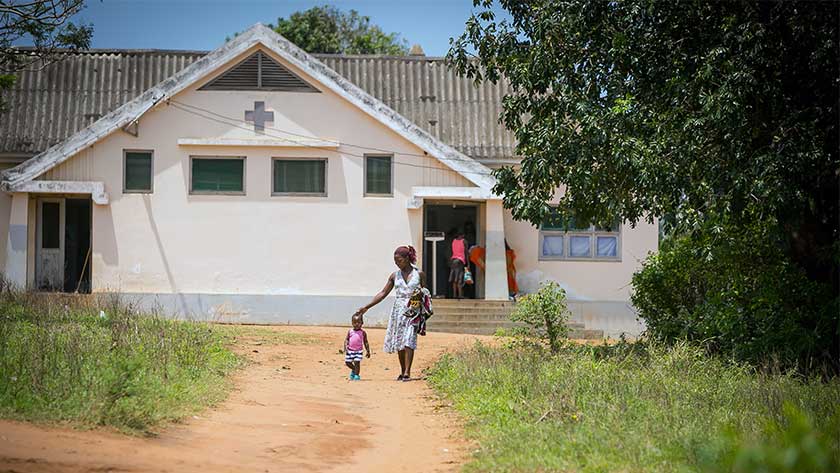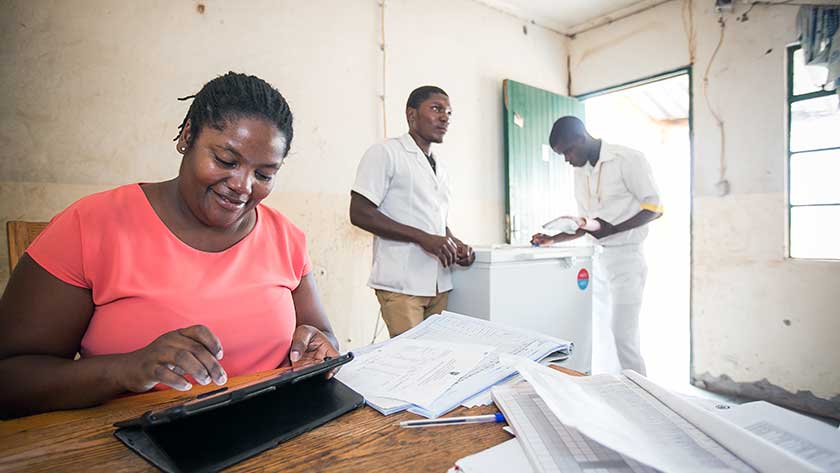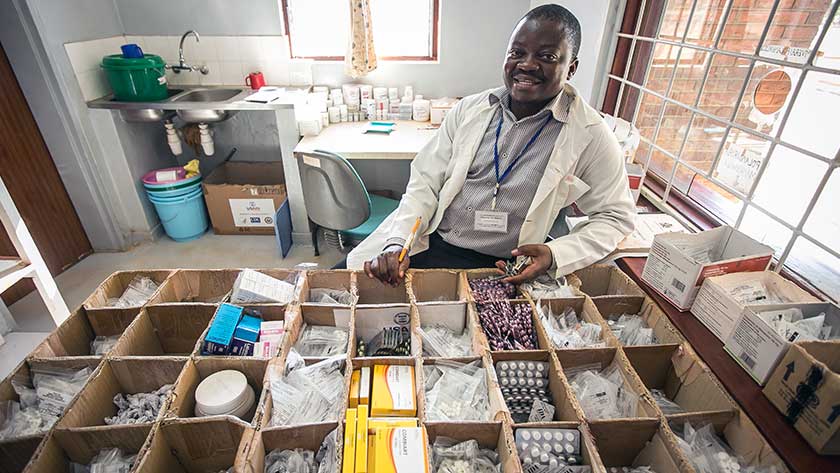Access to quality healthcare for all communities in a scalable and sustainable way—that is at the heart of VillageReach’s mission. VillageReach (2006 Skoll Social Entrepreneur) focuses on the lowest levels of the pyramid and the last mile of the health system. “That’s really where the opportunity for impact is,” said Emily Bancroft, VillageReach President, during a recent visit to the Skoll Foundation.
In Malawi, with its critical shortage of healthcare workers, the average amount of time spent with a nurse or doctor—if you’re fortunate enough to have access—is less than 60 seconds. “There are community health worker programs in rural Malawi, but they usually tend to cover 1,500 to 2,000 people, spread across a number of villages,” said Bancroft. “There are so many tools available to help us access information and services in real time. Why can’t Malawians expect the same care that we expect? Why can’t they also have efficient ways of accessing health information?”

A Malawian social entrepreneur and software developer—Soyapi Mumba—had the original idea for a community-based, free health hotline in Malawi. VillageReach partnered with Soyapi and his organization—Baobab Health Trust—to design and implement Chipatala cha pa Foni (Health Center by Phone), a toll-free health hotline to reach the most rural populations. Originally developed as a maternal and child health innovation, it now provides immediate information on all general health topics including nutrition. Hotline workers triage calls to doctors and refer callers for further care at a health center when needed. Women and caregivers can also sign up to receive personal text or voice messages on maternal and child health topics specific to their month of pregnancy or their child’s age. Simply put: This hotline saves lives.
Fast forward six years: The Malawian Ministry of Health has embraced this innovation, and written it into the Ministry’s strategic plan and budget. Airtel, the country’s largest mobile network, underwrites the hotline calls and the Ministry of Health will assume complete ownership of the hotline by 2019. This government uptake and corporate partnership will allow the hotline to reach unprecedented scale and become a lasting resource to Malawians.
“Not only does CCPF provide affordable and ongoing mobile-based access to health information for low-literacy populations in rural Malawi, the partnership model itself is noteworthy,” concluded a 2017 UNESCO case study. “The journey from a non-profit-led proof of concept in close partnership with the mobile network operator (MNO) Airtel, to a planned handover to the MoH for continued operations and scaling up, provides insight into sustainability.”
 VillageReach health workers use OpenLMIS open source logistics management software in Mozambique to track health commodities.
VillageReach health workers use OpenLMIS open source logistics management software in Mozambique to track health commodities.
Let’s linger on those last few words for a moment. Scaling with sustainability—that’s the guiding force for VillageReach. “We all want to get at the ‘total addressable problem,’ or complete equilibrium change,” said Bancroft. “What we all do as social entrepreneurs is carve out a piece of the problem that we can change. We do that as well as we can and we show it has impact, and we prove it out to the point that we have a model that works. In reality, though, we can only scale so far by growing our organizations. To get at that ‘total addressable problem’ we must think differently about how we approach the problem, with whom we partner, and how we come together in more of an ecosystem to address that problem.”
For VillageReach, the ‘total addressable problem’ is no less than quality healthcare for every community, and there’s no one path, said Bancroft. “We believe that there’s a series of system innovations that countries can pick and choose from, depending on their needs,” she said. “We’ve built ourselves as a portfolio organization, where we test out differences in innovations to see which have the most potential to address barriers to healthcare access at the last mile.”
From open-source software for managing healthcare supply chains and a for-profit energy distribution social enterprise, to a pharmacy assistant training program and early stage innovations like the use of UAVs, or drones to transport medicines and other health products, the impact of the VillageReach portfolio approach is both broad and deep.

Some illustrative statistics: In Northern Mozambique, VillageReach optimized the medical supply chain and its supporting infrastructure to increase vaccination rates from 68 to 95 percent. This and other VillageReach innovations have reached 20 million people across multiple sub-Saharan African countries.
Bancroft is quick to point out though that even when an organization has demonstrated its skill at designing, testing, and implementing a healthcare intervention, that same organization may not be well placed to bring that intervention to scale. VillageReach partners with other organizations on the ground with the expertise and reach to pick up an intervention and carry it forward.
“We may think we’re good at it,” said Bancroft. “But other groups are far better equipped to do a lot of this work at scale. We’ve been at this for almost 17 years now, so we certainly didn’t figure it out right away, but we’ve learned that to scale, we must find links with the interests of others who have the ability to scale and then be willing to let go.”